|
Flexible education, marketable skills and empowerment of the marginalized are the three basic elements of the massive poverty alleviation initiative of Dr. Nalini Gangadharan, founder Chairperson of the CAP Foundation. After her Master's Degree in social work from the Madras School of Social Work, Nalini had the opportunity to work closely with the late M.S.S.Nambudiri, Director of Seva Samajam Boys' Home, for nearly three and a half years first as social worker and subsequently as Assistant Director. Nambudiri was a champion of innovative education and skills development of the disadvantaged children and youth to enable them and their families to move out of poverty. Nalini, in later years, expanded these initial experiences into a great socio- economic movement in India and in other countries. As a student of MSSW, I found Nalini as a self-assured person with a purpose in life. In her life mission, she found the most appropriate life partner in Dr.K.R.Gangadharan, who was also an alumnus of MSSW. Gangadharan has a charming smile always on his lips and fast moving pace while walking. They met at Lucas-TVS where Nalini was a trainee under the Personnel Officer Gangadharan. It was the beginning of a satisfying companionship through matrimony. While Nalini expanded her frontiers by opening new horizons for the poor and underserved children and youth,and their families, Gangadharan preferred working with the elderly under the banner of Heritage elder care services at Hyderabad. Dr. Gangadhran rose to global heights in the field of ageing including the Presidentship of the International Federation on Ageing. Both Nalini and Gangadharan have been invited by the central and state gover nments to be in various panels. Poor nima and Pavithra, their dynamic daughters, are carrying forward the elder care activities launched by their father. Poornima's focus is on medical centre and home care services for the elderly, whereas Pavithra looks after the award winning assisted living programme called Kshethra. A blessed family whose family mission is service to humanity.
Dr.T.K.Nair Former Professor of Social Work and a Former Principal, Madras School of Social Work. Abstract
The term gender discrimination and sexual harassment at workplace was constructed from the view of women. The legal protection to women at workplace has been formulated at the block, district and national level for the organized as well as unorganized sector. The majority of working women are not aware of the legal protection issues. International Conventions and issues related to gender discrimination and sexual harassment at workplace has been discussed along with social work intervention. Abstract
Social work begins from home, is learnt in school and expands in life. Unfortunately education today has compromised the need to develop strong individuals with values and clarity who feel responsible for society and themselves. The need of the hour is ‘Life education’ and just not ‘Life skills’. The paper elaborates on the ingredients that go into building evolutionary excellence amongst students based on experiential research with children between 10 to 16 years in Bangalore city. The module is built on Learning–Doing–Integrating and teaching children deeper reflection process. The highlight of the program is SAP – social action project that children undertake in tenth grade. Abstract
Abuse of alcohol has become a serious public health and socio economic problem in Indian villages. Treatment services are neither available nor affordable. Keeping this in mind TTK Hospital has developed a cost effective community approach of treatment with the involvement of the community. The organization has been conducting six camps each year for the past 25 years. Abstract
This article is about the evolution of SHGs in the country and the resultant benefits for the under-served population, especially for women. The SHGs have acquired the status of a movement in India, within a span of three decades, thanks to the sustained efforts of the NGOs, NABARD and the State Governments. SHGs from the simple savings and credit groups have evolved as village levelcommunity based organizations not only to take care of the financial needs of the marginalised communities but also to access various community infrastructures and amenities. This was possible by a process oriented approach. Yet, in recent times, most of the SHGs are targeted by the professional micro finance institutions/agencies (MFIs) for credit delivery, banking on its good repayment history. This massive invasion of MFIs has undermined the habit of regular savings, internal rotation of funds and book keeping, which were the mainstay of SHGs. This is a worrying trend, as SHGs become a target, ignoring the fact that it was a product of process. Abstract
Advancement of medical sciences have influenced significantly on the lives of people, it broadened the scope for well being, improved the quality and expectancy of life. A large number of health problems and diseases are under control through the improvement of medical technology. Emergence of medical technology for human organ transplantation is one of the crucial steps in the journey of sustaining health, and life. Even the technology is advanced in regard with the organ transplantation but the non availability of the organs always constrained the process. Abstract
The article traces the evolution of nursing as a globally recognized profession from an intuitive art in the homes. The historical development of nursing by Egyptians, Greeks, Romans, Chinese, Hindus, Christians, and Arabs is discussed. Nursing in the modern era, with its low and high points, and the contribution of Florence Nightingale as the turning point in the development and recognition of nursing are also examined in the article. The professional characteristics of nursing, the personal qualities needed for a professional nurse, code of ethics, and professional accountability are the other key components of the article. Abstract
In organisational life, introspecting about ourselves and alignment with the organisation plays a vital role in the success of the individuals across all levels. This would be done by working on relationship building and developing the mental ability of configuring with people. We need to also understand organisation needs, expectations and then start configuring them with that of the Self. It is important to keep in mind that this process of alignment is dynamic and a continuous process. Abstract:
Children constitute 39 percent of the total population and majority of the children (72% of the total child population) are in rural parts of the country who are living in an unequal condition compared to their urban brethren. Due to ignorance, lack of facilities, and omission by the duty bearers most of the rights of the rural children are violated. In the best interest of children several meaningful and powerful statutes and systems are created, but fail to reach the poor and rural children resulting in their continued exploitation. There is an urgent need for the concerned statutory body like the District Juvenile Justice System to take note of the real condition of rural children with facts and figures and direct the concerned duty bearers to deliver expected services. If we ignore the rural children today, all the good intended programmes, projects and statutes fail our young citizens. Abstract
The ageing scenario in India has transformed in the recent decades due to the observed demographic trends among the older population and rapid social change that has led to the decline in informal supports for older persons within the family, which may be adversely affecting their well-being. In this context, Living Arrangements (LAs) are identified as a basic determinant and an indicator of the care and nature of informal supports available to the older persons within the family, and therefore of their Quality of Life (QoL). In the current study, while understanding the family relations that are part of LAs of the older persons, the findings revealed who the hardest and easiest person to get along with them were, and that respondents’ perception about the level of interest shown by their family members towards their well-being varied according to their current LAs and seemed to impact their QoL and its related factors such as loneliness and adaptation to old age. Abstract
The author traces events and circumstances in his career and pursuits that impacted his belief system. He recalls how he has been inconsistent on approach to life, while standing firm on values. Such shifts in beliefs that he held from time to time helped in his evolving as the person he is now. The journey continues with no guarantee that he will arrive at a point where consistency replaces inconsistency, his hallmark. The author claims that he has a brand new innings to play, having lofty vision and hazy plans! Abstract
The article explains the concept of health, disease and illness. The WHO definition of health is very relevant, though there is some criticism that it is too broad, according to the author. The article explains the spectrum of health, determinants of health, health systems, and levels of health services. Evolution of hospital as a social institution and hospital as a social system are two major sections of the article. Dr. K. Prabakar CEO, Apollo Knowledge, Chennai Abstract
The purpose of this article is to provide a general summary of the CSR perception and operation in the Indian context. This article focuses in exploring the understanding of the various CSR operations in India. The article reviews the current operational challenges of corporates and in particular after the CSR bill implementation process. The article also focuses on the key stakeholders within the organization responsible for CSR implementation, role clarity and social development understanding. Need-based community issues and duplication of projects are also explored in detail. The responsibilities of industry organizations like CII, NASSCOM, FICCI & IICA are also highlighted in advocating for CSR. NGO partnership issues were also explored along with the government stakeholders’ participation in the social development issue. This article is purely based on the secondary data and tries to focus on the findings and reviewing of the issues and challenges faced by all the stakeholders involved in CSR. Ramkumar Sethupathy CSR Consultant, UNICEF
Abstract
What makes Corporate Social Responsibility a hand in hand proposition with social development? Is social vision a derivative of business vision or is it otherwise? WIPRO is an excellent example of how there could be a strong connection, interdependence and contribution in both business and social responsibility without compromising on both. This article traces the history, orientation, and attitude that supports the CSR sustainability. It also gives a peek into the nature of programs run by WIPRO that makes it a nation building partner than merely a supporter of social development. The article brings out the truth that unless there is a personal orientation towards social responsibility a larger organizational interest cannot be generated. Premji’s life and vision makes an excellent case study to articulate on these foundational dimensions of CSR. Dr. Kalpana Sampath Director of Arpitha Associates Pvt Ltd.
Abstract
Corporate Social Responsibility (CSR) in India as well as all over the world is a shift from industrial philanthropy of the past into strategic set of programmes to address the concerns of the stakeholders, besides the stockholders, what is commonly referred to as the “triple bottom line”—people, planet, and profits. Manifestations of grave wealth inequalities in the world as well as in India, widespread poverty, destruction of the environment, frequent natural disasters because of climate change, and wars, terrorism, and political conflicts have discredited the capitalist mode of wealth accumulation. Societies based on unlimited wealth accumulation and mass consumption are unsustainable. CSR, promoted by the United Nations Global Compact, is a feeble effort to counteract it. Revolutionary changes that go beyond CSR, and move our society toward the Gandhian vision of Gram Swaraj—self-governing, self-sustaining, decentralized and democratic village eco-communities, assuring good quality of life and wellbeing, are vital. This alone will save humankind from an impending apocalyptic sixth extinction predicted by climate scientists. Dr. Henry J D’Souza Professor, Grace Abbott School of Social Work, University of Nebraska at Omaha, USA Abstract
The article examines the different explanations of the concept of CSR, and the strengths and weaknesses of CSR. It discusses the shift from CSR to CSV (Creating Shared Value) by enlightened companies across the globe. CSR in India has evolved from merchant philanthropy to social development oriented activities by companies. But CSR has always been discretionary in nature by the corporate organizations. Some companies have been outstanding in the CSR domain, while many companies involved themselves in CSR activities only for image building. The new Companies Act of 2013 made CSR mandatory for a class of companies. This article also discusses the CSR legislation of the government of India and its implications. Key Words: Corporate social responsibility, creating shared value, employee volunteering, HR practices. K.N. Ajith Vice-President (Human Resources), Mytrah Energy (India) Limited, Hyderabad-500032 T.K. Nair
Abstract Social work education in India is in its eightieth year and yet social work has not been accepted as a profession by the major stakeholders, particularly the government. The present article starts with a discussion on Social Welfare and Social Work. It traces the evolution of social work as a profession globally from “applied philanthropy” and “scentific charity”. It goes on to examine the professionalization of social work in India. Detailed analysis of the weaknesses of social work education and utilization of social welfare manpower have also been attempted in the article. The author concludes that social work in India is not a full profession and it is only a semi-profession. “Shanthi Ranganathan is a rare person and a social worker par excellence. She transcended the intense personal tragedy due to the irreparable loss of her husband at a young age and created a world class institution which has been transforming the lives of thousands of individuals and families. Her grit and determination have only a few parallels. For me, it has been a privilege to associate myself with her during her student days at the Madras School of Social work four decades ago and subsequently during the early years of the T T Ranganathan Clinical Research Foundation (TTRCRF)”.
Dr. T.K. Nair Professor of Social Work and Former Principal, Madras School of Social Work. Dr.T.K.Nair
Development and CSR Consultant "Prakriti Rakshathi Rakshitah" (Nature Protects When Protected) Abstract The article has three parts .The environmental crisis facing Mother Earth is described in the introductory part. The second section Sustainability and Spirituality is a summary of the "meditations" on sustainable cultures and cosmologies in Asia and the associated writings of Nadarajah in his seminal, visual-textual book Living Pathways. The final part looks at the expected role of social work profession in the environmental justice movement and the disappointing reality. |
Categories
All
Social Work Learning Academy50,000 HR PROFESSIONALS ARE CONNECTED THROUGH OUR NIRATHANKA HR GROUPS.
YOU CAN ALSO JOIN AND PARTICIPATE IN OUR GROUP DISCUSSIONS. MHR LEARNING ACADEMYGet it on Google Play store
|
SITE MAP
SiteTRAININGJOB |
HR SERVICESOTHER SERVICESnIRATHANKA CITIZENS CONNECT |
NIRATHANKAPOSHOUR OTHER WEBSITESSubscribe |
MHR LEARNING ACADEMY
50,000 HR AND SOCIAL WORK PROFESSIONALS ARE CONNECTED THROUGH OUR NIRATHANKA HR GROUPS.
YOU CAN ALSO JOIN AND PARTICIPATE IN OUR GROUP DISCUSSIONS.
YOU CAN ALSO JOIN AND PARTICIPATE IN OUR GROUP DISCUSSIONS.
|
|

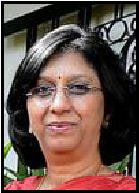
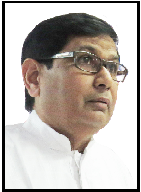
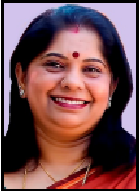
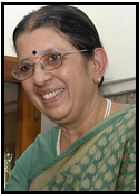
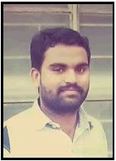
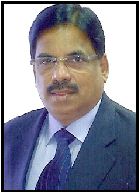
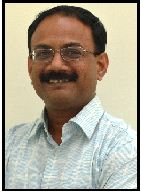
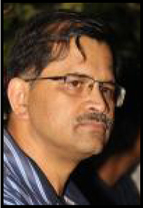
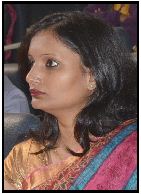
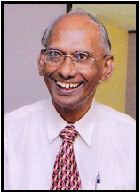
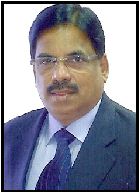



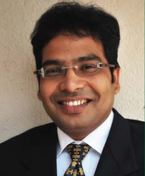
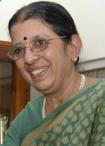
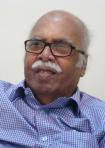





 RSS Feed
RSS Feed





